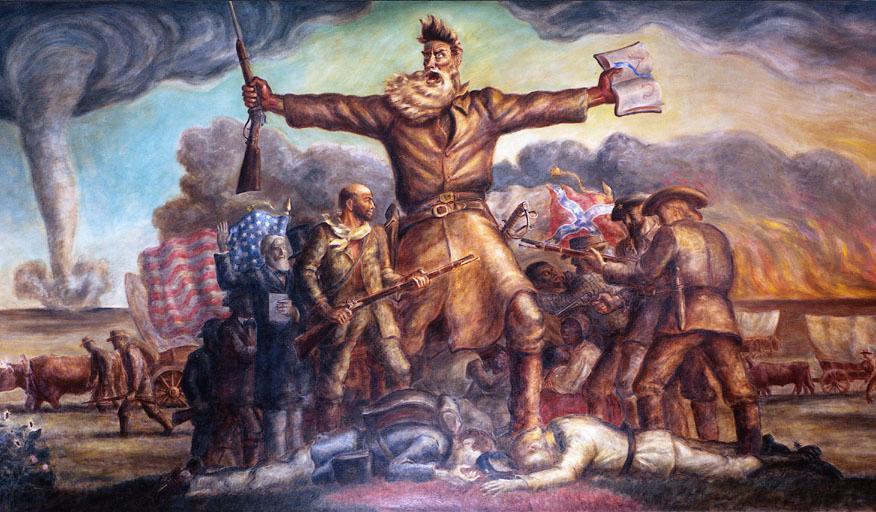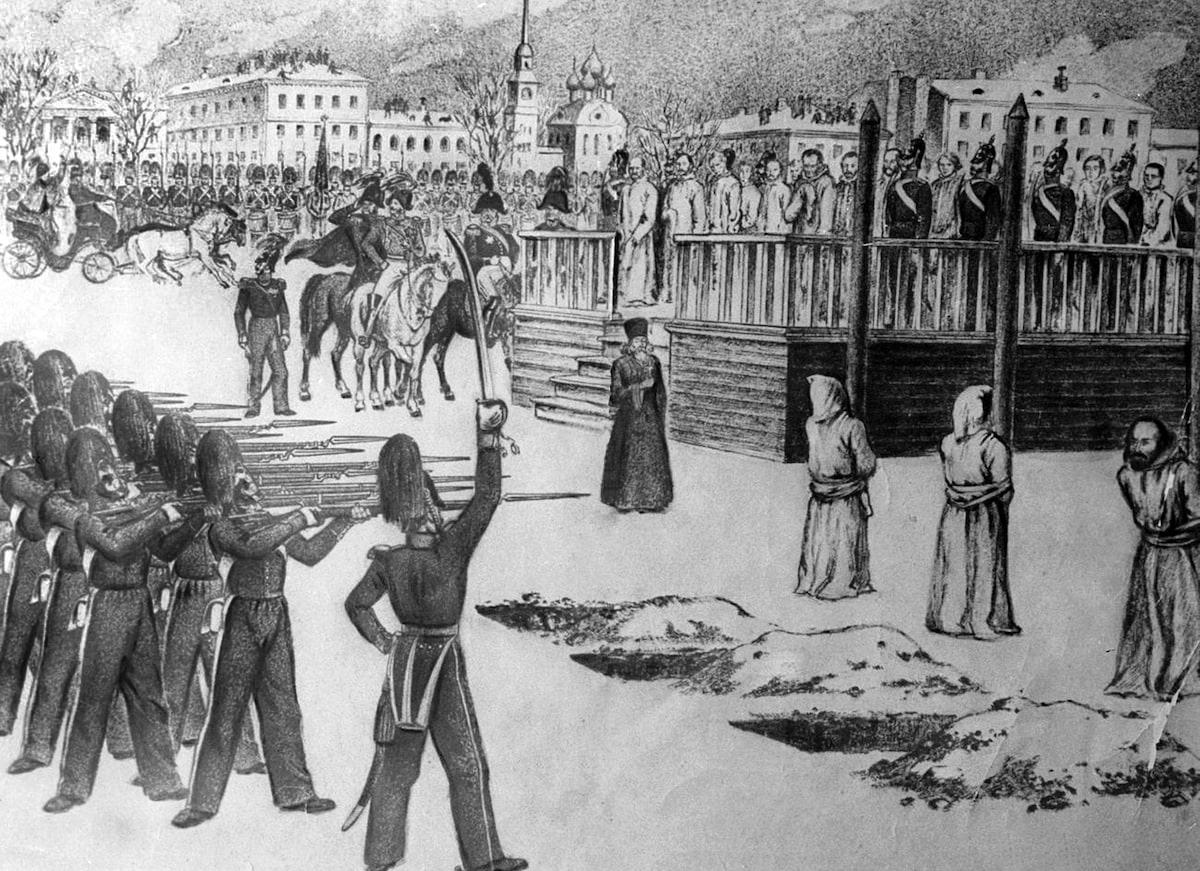Maricopa County prosecutors have frequently pursued the death penalty, but just 13% of cases ended in a death sentence, ProPublica and ABC15 Arizona found this year. Experts say the numbers raise questions about the office’s decision-making.
https://www.propublica.org/article/maricopa-county-arizona-death-penalty-cases?utm_source=mastodon&utm_medium=social&utm_campaign=mastodon-post
#deathpenalty
See tagged statuses in the local BookWyrm community
Kyrgyz Constitutional Court Rules Against Reinstating #DeathPenalty - https://astanatimes.com/2025/12/kyrgyz-constitutional-court-rules-against-reinstating-death-penalty/ "bringing back the death penalty is unacceptable and legally impossible." well done, Kyrgyz Constitutional Court #kyrgyzstan
Today in Labor History December 2, 1859: The authorities hanged abolitionist John Brown in Charleston, Virginia for his leadership of a plot to incite a slave rebellion. Victor Hugo, who was living in exile on Guernsey, tried to obtain a pardon for him. His open letter was published by the press on both sides of the Atlantic. His plea failed, of course. On the day of his execution, John Brown rode in a furniture wagon, on top of his own coffin, through a crowd of 2,000 soldiers, to the gallows. The soldiers included future Confederate general Stonewall Jackson and John Wilkes Booth. Walt Whitman described the execution in his poem “Year of Meteors.”
#workingclass #LaborHistory #slavery #racism #abolition #JohnBrown #rebellion #hanging #deathpenalty #poetry #fiction #books …
Today in Labor History December 2, 1859: The authorities hanged abolitionist John Brown in Charleston, Virginia for his leadership of a plot to incite a slave rebellion. Victor Hugo, who was living in exile on Guernsey, tried to obtain a pardon for him. His open letter was published by the press on both sides of the Atlantic. His plea failed, of course. On the day of his execution, John Brown rode in a furniture wagon, on top of his own coffin, through a crowd of 2,000 soldiers, to the gallows. The soldiers included future Confederate general Stonewall Jackson and John Wilkes Booth. Walt Whitman described the execution in his poem “Year of Meteors.”
#workingclass #LaborHistory #slavery #racism #abolition #JohnBrown #rebellion #hanging #deathpenalty #poetry #fiction #books #novel #BlackMastodon @bookstadon
Since 1973, at least 201 people on death row have been exonerated—meaning cleared of any responsibility for a crime. Eighteen of those people were in #Texas. A recent report reveals how racist the ultimate punishment really is: https://www.texasobserver.org/aclu-report-death-penalty-exonerations/
#DeathPenalty #HumanRights #law #politics #USpol #news #prison #racism
Israel moves to approve death penalty solely for Palestinians:
https://www.icjpalestine.com/2025/11/11/from-genocide-to-legalised-execution-israel-death-penalty/
It is not an Apartheid system
It is not an Apartheid system
It is not an Apartheid system
It is not an Apartheid system
Now move on and support Israel, the only democracy in the Middle East and send them a blank check
Today in Labor History November 16, 1849: Russian authorities gave a death sentence to author Fyodor Dostoevsky for anti-government activities linked to a radical intellectual group called the Petrashevsky Circle. He and his colleagues were lined up before the firing squad when, at the last minute, a cart arrived with a letter from the Tsar, commuting their sentence. He still had to serve 4 years hard labor in Siberia. Dostoevsky alludes to his experience before the firing squad in his 1868-1869 novel, “The Idiot.”
#workingclass #LaborHistory #radical #deathpenalty #executuion #russia #dostoevsky #writer #author #fiction #novel #books @bookstadon
Yesterday: "The death penalty is extremely fiscally irresponsible. It costs more to sentence someone to death and execute them than to sentence them to life in #prison without parole. It’s also an ineffective deterrent to violent crime." https://www.texasobserver.org/pro-life-anti-death-penalty/
#DeathPenalty #politics #USpol #news #law #Republicans #religion #ethics #HumanRights
"There is no sugarcoating this; a majority of 39 Israeli Knesset members approved in a first reading a bill that effectively mandates courts to impose the death penalty exclusively against Palestinians. While the text of the bill does not specifically single out Palestinians, the mental element required for the offence concerned signals its primary victims are going to be Palestinians"
In a three-day trial in 1995, Anthony Boyd was convicted of murder and sentenced to death, based solely on the word of a co-defendant who testified under the threat of capital punishment. No physical evidence connected him to the murder of Gregory "New York" Huguley. Boyd has been on death row ever since, and is due to be executed by the state of Alabama on Oct. 23. @bolts examines the reasons to doubt the conviction: Inadequate legal representation, conflicting witness reports, and a system that disproportionately sends Black people to death row.
#USLaw #USNews #Alabama #DeathPenalty #DeathRow #JusticeSystem #Racism
“This can happen to anyone. You can be going about your normal life and be accused by your government of something so horrific that has complete medical explanations and find yourself in a battle like this. That’s a battle for your life, for your family.”
https://www.texasobserver.org/robert-roberson-stares-down-death-again/
#DeathPenalty #Texas #news #politics #USpol #prison #HumanRights
“We can prove that Robert is innocent, and no reasonable jury would find otherwise if presented with all relevant medical evidence.”
New from Michelle Pitcher: Despite the evidence, and overwhelming support, Roberson's execution date is set for October 16. https://www.texasobserver.org/robert-roberson-stares-down-death-again/
#prison #law #health #science #DeathPenalty #HumanRights #Texas #politics #USpol #news
“We can prove that Robert is innocent, and no reasonable jury would find otherwise if presented with all relevant medical evidence.”
New from Michelle Pitcher: Despite the evidence, and overwhelming support, Roberson's execution date is set for October 16. https://www.texasobserver.org/robert-roberson-stares-down-death-again/
#prison #law #health #science #DeathPenalty #HumanRights #Texas #politics #USpol #news
President Trump signed two memoranda Thursday—one directing federal agencies to intensify investigations into liberal groups under a new “domestic terrorism” strategy, and another ordering strict enforcement of federal death penalty laws in Washington, D.C. The directives potentially broaden federal punitive power in ways that could affect minority or politically unpopular groups if prosecutions become politicized.
Out yesterday from Lise Olsen: Beathard was put to death in 1999 for murders that his co-defendant claimed to have committed without him. A new #documentary-in-progress seeks to bring his case to light.
https://www.texasobserver.org/the-innocent-and-the-executed-james-beathards-long-forgotten-story/
#media #film #DeathPenalty #Texas #law #HumanRights #news #politics #USpol
Death penalty update, from Michelle Pitcher: “We as a legislature actually created a way for people like Mr. Roberson to challenge convictions based on science that later turns out to be wrong. ... The courts simply aren’t engaging in that process.” https://www.texasobserver.org/robert-roberson-new-execution-date/
#DeathPenalty #news #politics #USpol #HumanRights #prison #law #Texas
“I’m very alarmed by some of the misinformation about the case that has been intentionally peddled in certain circles, and I think it’s emanating from elected officials. … It has to do with politics, which should have no place in this.” https://www.texasobserver.org/robert-roberson-new-execution-date/
#DeathPenalty #law #news #politics #USpol #HumanRights #TXlege #Texas









